What do I need to know about atrial fibrillation?
What do I usually need to pay attention to atrial fibrillation? This is a question that concerns many atrial fibrillation patients and family members of atrial fibrillation patients. It can be said that from the first day of discovering atrial fibrillation, it is expected that many people start to pay attention to all the relevant issues about atrial fibrillation. So, what do you really need to pay attention to when you have atrial fibrillation? Today, Dr. Zhang will tell you about this question.
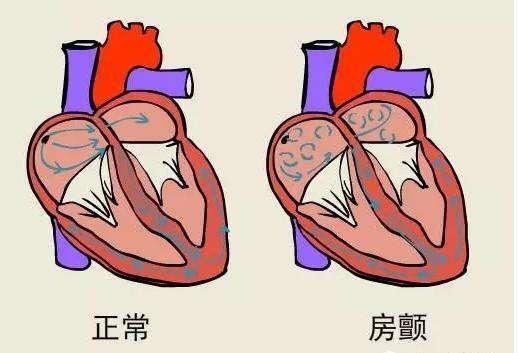
Atrial Fibrillation (AF) is the big name, but it is more commonly known by its nickname "atrial fibrillation". Atrial fibrillation is an important health problem that jeopardizes human health. In fact, the reason behind the increasing number of patients with atrial fibrillation is the unhealthy lifestyle, the increasing number of chronic diseases such as hypertension, the aging of the population and other health problems. So, since the incidence of atrial fibrillation is so high, how should we face it if people around us have atrial fibrillation? I suggest that we pay attention to 3 points, which are often referred to as the ABC's over the years:
A: A generally refers to anticoagulation, and it can be said that anticoagulation has always been a constant theme and topic in the treatment regimen of atrial fibrillation, and assessing the patient's risk of embolism and bleeding is the first task in performing anticoagulation. If, after the assessment, the need for anticoagulation is found to be greater, then anticoagulation can be initiated, for example with drugs such as warfarin, dabigatran and rivaroxaban. It has to be said here that if warfarin is used, it is relatively more troublesome and requires regular testing of INR indicators. Dabigatran and rivaroxaban, on the other hand, do not require INR monitoring.

B: B is for better symptom management. And symptom control is arguably the second pillar of treatment after anticoagulation. Symptom control takes into account the patient's own condition and controls the heart rate and rhythm through the use of antiarrhythmic medications, reentry therapy, or radiofrequency ablation therapy. Heart rate control means getting the heart rate up to par and not beating too fast. And reentry therapy means controlling sinus rhythm to minimize the recurrence of atrial fibrillation, and ideally to cure it.
Here I would like to mention the radiofrequency ablation procedure that patients with atrial fibrillation would like to know about. This procedure was not very mature in the past, but it has been greatly developed in the past two years and the technique of the procedure is getting more and more mature. Many patients with atrial fibrillation may not have had indications for the procedure in the past, but with the revision of the new guidelines in the past two years, it should be said that more patients with atrial fibrillation still have the opportunity to undergo the procedure.
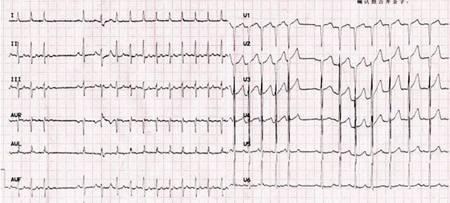
C: C refers to lifestyle management and risk factor control. This part of its core refers to the management of cardiovascular risk factors in patients with AF, such as improving lifestyle, as well as controlling hypertension, lipids, and glucose, in order to reduce the recurrence of AF, delay the progression of AF, and also improve the effectiveness of medication and catheter ablation therapy, which ultimately improves the prognosis of patients with AF.
Some of the newly updated guidelines for the management of atrial fibrillation in recent years have made an important shift. Instead of sticking to the mechanical and dogmatic recommendations and discussions of the past, they all focus more on comprehensive patient-centered assessment, management and treatment. This is a good change, and we hope that patients with atrial fibrillation will visit a specialized cardiology specialist as soon as possible to seek the most professional treatment options.
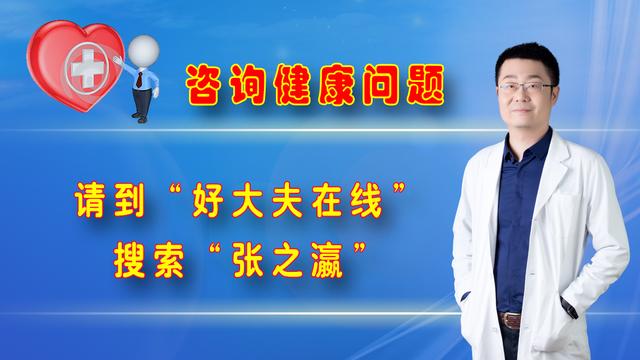
Atrial fibrillation is rapid, disorganized electrical activity in the atria, and it may be difficult to understand when stated that way, so let's draw a sketch to help understand.As shown in the figure below:In a normal heart the individual heart muscles of the atria move in the same direction and can eventually form a combined force. In atrial fibrillation, the individual forces are disorganized and therefore cancel each other out, an ineffective movement. As a result, the blood from the atria cannot get into the ventricles and stays in the atria, where the blood does not move and is prone to forming blood clots.
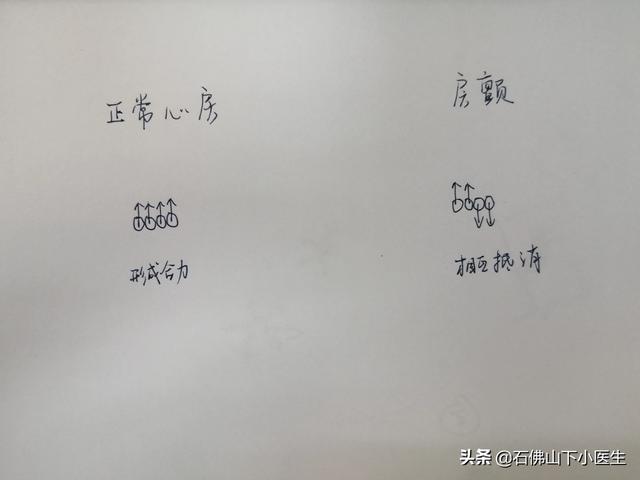
So, what do patients with atrial fibrillation need to be aware of? I think the thing to look out for is anticoagulation to prevent thrombosis.
I. What are the dangers of not anticoagulating atrial fibrillation?
Atrial fibrillation is not anticoagulated, blood clots form in the atria, and when the clots are dislodged, they travel with the body's blood circulation to arteries throughout the body, causing blockages. When it reaches the cerebral arteries, it causes cerebral infarction, and when it reaches the peripheral arteries, it causes blockage of the peripheral arteries. The most common location of blockage in atrial fibrillation is the cerebral artery.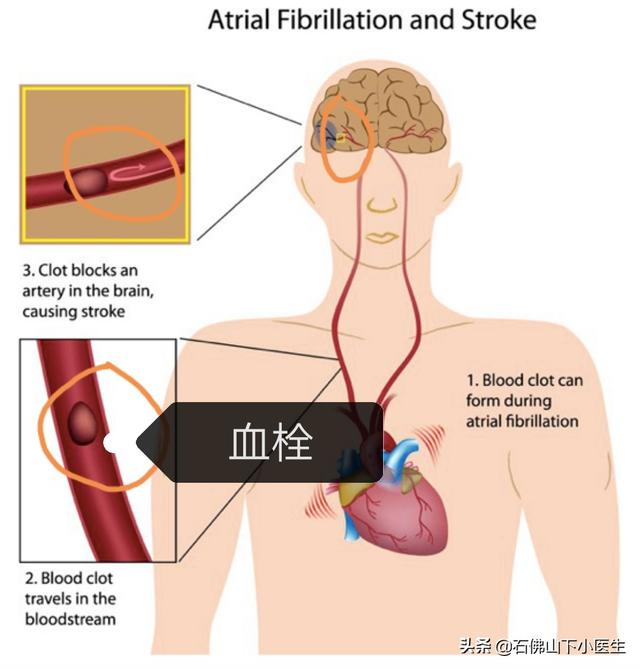
Second, how to anticoagulate patients with atrial fibrillation
Anticoagulation for atrial fibrillation is mainly done by taking anticoagulant drugs. There are two main classes of drugs available.
1. Warfarin
Warfarin has a long history of anticoagulation, the main advantage is that it is cheaper and quite effective, the disadvantage is that it is more troublesome, you have to draw blood frequently to keep the INR between 2-3. After the INR is stabilized, blood tests should be done almost once a month. Poor use of warfarin may also lead to hemorrhage. And warfarin, is easily affected by food and medication.
2. New oral anticoagulants
This type of drug has emerged in recent years and can also be used for anticoagulation, mainly Rivaroxaban and Dabigatran. And there is no need to monitor INR, but it is relatively expensive at present, and there are no drugs that can stop bleeding once it occurs.
Third, not everyone needs anticoagulation and not everyone is a candidate for anticoagulation therapy.
How do you know if you want to anticoagulate? It's simple, and that's how doctors look at it. As shown in the chart below: the CHA2DS2-VASc score, anticoagulation is needed when men score ≥2 and women score ≥3.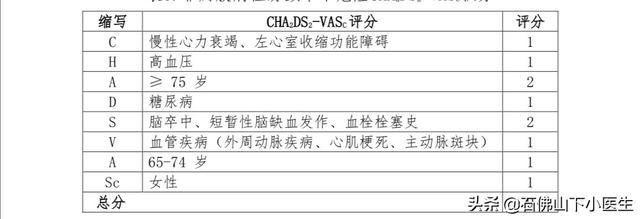
So, what about those who are not candidates for anticoagulation? Again, there is a table. As shown below, the HAS-BLED score Indicates the patient's risk of bleeding, and when the score is ≥3, it means that the risk of bleeding is higher, and anticoagulation may not be appropriate, and something else needs to be thought of.
IV. What to do if you are not suitable for anticoagulation
Some people are not candidates for anticoagulation, such as those described above, who have a HAS-Bled score of ≥3, or who continue to develop clots despite anticoagulation, or who are not able to adhere to their medications for a long period of time. An interventional procedure may be recommended to occlude the left auricle, which is an area of the atrium that is prone to thrombus growth. It has been found that left auricle blockade is more effective and safer than warfarin.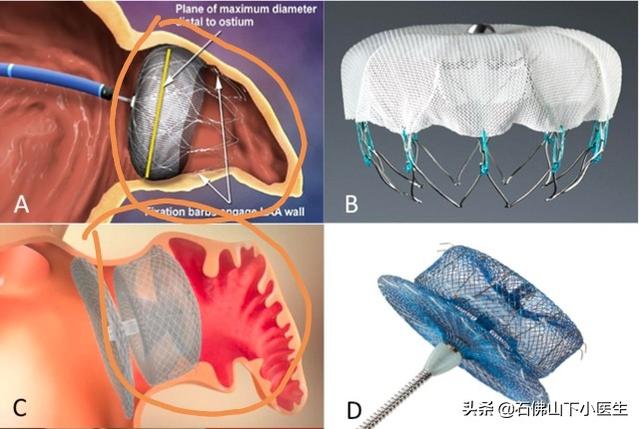
To summarize, atrial fibrillation I think the main thing to watch out for is the anticoagulation issue, and the bleeding after anticoagulation a problem.
66-year-old Zhang, the body has been very good, usually after dinner will also go with his partner to play Tai Chi, the surrounding people are very envious, but the last few days have been feeling no strength, heartbeat is also a little fast, his partner said to accompany Zhang to the hospital to check the body, for fear of what happened, after all, the age of the quite big, but Zhang in order to save some money, has been procrastinating, due to the persistence of the symptoms, Tai Chi is not to play! .
But the symptoms later more and more serious, in the morning when my partner came back from the grocery shopping, there is a hospital leaflet in his hand, above the check is quite cheap, good talk finally pulled Zhang Da to the hospital for a checkup, finally diagnosed with atrial fibrillation, the other to nothing big, because Zhang Da does not want to hospitalization, the doctor prescribed a part of the medicine, instructed Zhang to take it on time, as soon as anomalies appear to come to the hospital for a checkup.
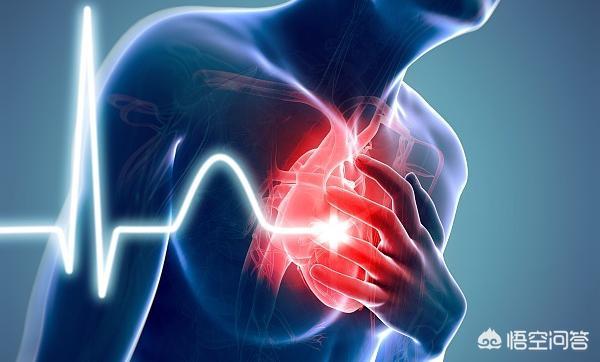
In recent years, the number of patients with atrial fibrillation has been particularly high, and there are few patients like Brother Zhang who have been detected with atrial fibrillation because of the routine checkup package, but due to the lack of common medical knowledge, patients are unable to treat it correctly.
Atrial fibrillation, also known as atrial fibrillation, is a type of heart arrhythmia that occurs more frequently in people over the age of 75 and increases with age.
It is often associated with hypertension, coronary heart disease and alcohol consumption. The main manifestations are accelerated heartbeat, often feel tired, the whole body has no strength, there will be blurred vision, dizziness or even fainting, there will also be a sense of pressure in the chest or chest pain, and usually feel dyspnea, chest tightness and shortness of breath, but there are also some patients with no symptoms.
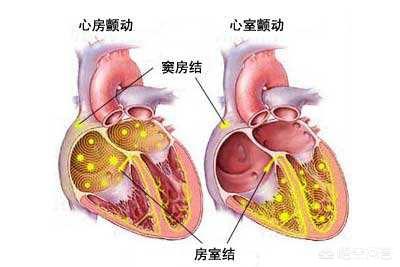
Severe cases of atrial fibrillation can also lead to death, so find out what to look out for when atrial fibrillation occurs.
1. In terms of taking medication, we should pay attention to the fact that we can't go to the drugstore to buy atrial fibrillation medication at will, because there are some medications for atrial fibrillation that have side effects, and we need to use the medication under the guidance of a doctor. Atrial fibrillation is a very serious kind of cardiovascular disease, and it should not be underestimated.
2. Diet, every day need to eat, so improper diet will directly stimulate the cardiovascular disease, which requires us to pay more attention to our diet, in order to avoid the emergence of other diseases at the same time should also pay attention to avoid aggravating the condition of atrial fibrillation, need to eat less fat and cholesterol-rich food, such as offal, fatty meat, etc., and to avoid smoking and drinking and drinking strong tea and other stimulating beverages.
3. Exercise, exercise is good for the body, but need to avoid strenuous exercise, such as walking, health exercises, etc. can, will also prevent the onset of atrial fibrillation.
4. Emotions, to avoid the emergence of bad emotions, such as anger, anger, anxious, etc..
5. Pay attention to keep warm, do not get cold, prevent the occurrence of cold, so as not to cause other respiratory diseases and trigger heart fibrillation.

I hope my answer helps you!
If there's anything you don't understand, comment and private message me!
1 year ago, the patient Lao Zhang panic hospitalized, after examination and diagnosis of arrhythmia atrial fibrillation, and then after evaluation, the patient was advised to take anticoagulant drugs to prevent blood clots and cerebral infarction, but the patient felt that he did not have any discomfort, and taking medication has a risk of bleeding, the patient refused.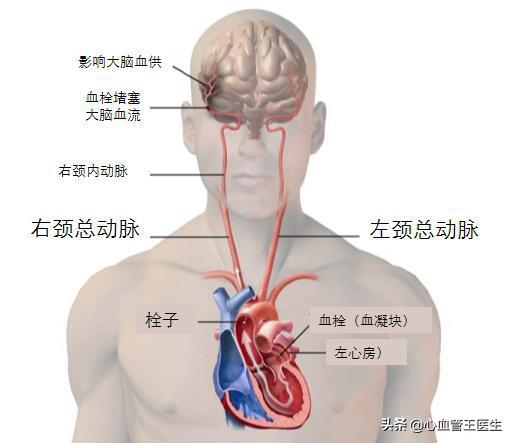
As a result, on Monday, when Lao Zhang was eating his meal, he suddenly dropped his bowl on the floor and fell down himself, his mouth was crooked, he could not speak, and he was paralyzed.
Sent to the hospital for a CT suggesting cerebral infarction due to atrial fibrillation!
I. What is atrial fibrillation
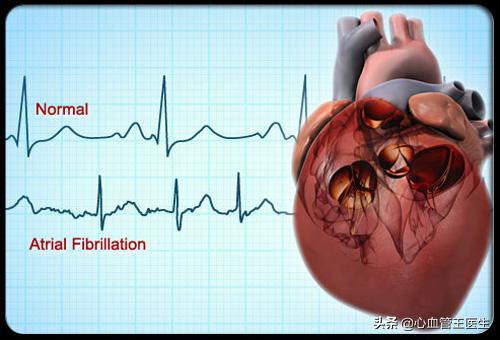
Atrial fibrillation is the most common type of arrhythmia, which simply means that the heart beats erratically. A normal heart beats regularly one at a time; when atrial fibrillation occurs, the heart beats irregularly.
Atrial fibrillation can be secondary to other heart diseases, such as long-term high blood pressure, coronary heart disease, cardiomyopathy, valvular disease, wind heart disease, pulmonary heart disease and other heart diseases can lead to atrial fibrillation; hyperthyroidism, diabetes mellitus and so on also lead to atrial fibrillation, there is no any reason can also lead to atrial fibrillation, with age, the risk of atrial fibrillation increases significantly. Long-term alcohol consumption, overwork, and smoking are also common causes.
Second, what are the hazards of atrial fibrillation
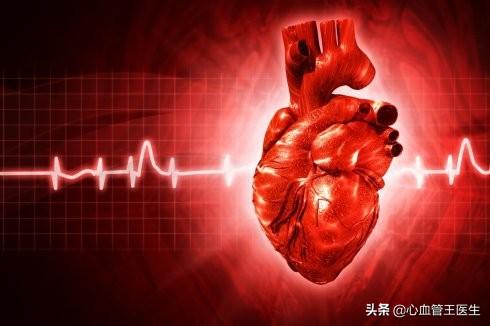
A new or early onset of atrial fibrillation may cause the patient himself to be uncomfortable and feel uncomfortable with panic attacks, palpitations, chest tightness, shortness of breath, and so on. However, as the time of atrial fibrillation is prolonged, the patient will adapt to this chaotic beating heart, and there is no discomfort. Many people do not care, think no discomfort is no harm, do not know that the biggest danger of atrial fibrillation is not panic palpitations, but atrial fibrillation will form blood clots, blood clots once dislodged will run with the blood flow to the cerebral blood vessels, blocking the cerebral blood vessels after the cerebral infarction will occur.
20% of all cerebral infarctions are cerebral infarctions caused by atrial fibrillation thrombosis. Just like Lao Zhang, atrial fibrillation slowly no longer uncomfortable, but unwilling to formal treatment, resulting in thrombosis, causing hemiplegia aphasia.
Chronic atrial fibrillation also causes heart failure, and heart failure exacerbates atrial fibrillation, creating a vicious cycle. The annual incidence of atrial fibrillation in patients with heart failure is about 54%, and the annual incidence of heart failure in patients with atrial fibrillation is about 33%. Patients with atrial fibrillation in combination with heart failure have a poor long-term prognosis, high hospitalization rates, and high mortality rates.
Atrial fibrillation can cause a 5-fold increase in the risk of stroke, a 3-fold increase in the risk of heart failure, and a nearly 2-fold increase in the risk of death, significantly decreasing patients' quality of life, as well as placing a burden on society and families.
III. How to treat atrial fibrillation
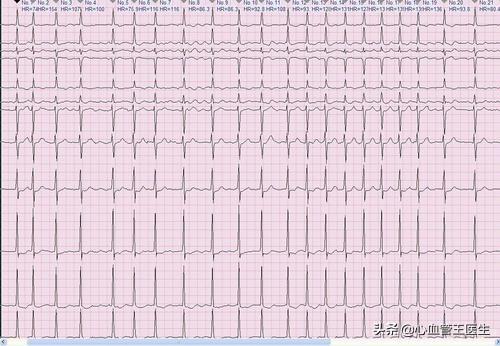
If Lao Zhang can listen to my advice, formal anticoagulation to prevent blood clots, then there will not be a sudden stroke of cerebral infarction ......
How should atrial fibrillation be treated?
1, new-onset atrial fibrillation, first go to find the cause of atrial fibrillation, such as coronary heart disease, wind heart disease, high blood pressure, etc., now treating the primary disease, at the same time must be as soon as possible to the atrial fibrillation reverted to a normal sinus rhythm, for example, after the infusion of many of the atrial fibrillation will change back to a normal sinus rhythm, then later on the prevention of atrial fibrillation on the drug, and can even do without anticoagulant drugs.
But atrial fibrillation is like a dog-eat-dog, and once it happens once, it almost always comes back!
2, for repeated episodes of atrial fibrillation, or persistent atrial fibrillation, it is necessary to anticoagulation therapy under the evaluation of the doctor. Anticoagulation is not aspirin as many people understand it, aspirin is anti-platelet aggregation, anti-thrombotic. Instead, anticoagulation is directly antithrombotic, and commonly used medications include drugs such as warfarin, dabigatran, and rivaroxaban.
3, for some atrial fibrillation after evaluation, can choose radiofrequency ablation surgery to eradicate atrial fibrillation, can also choose the left heart ear blocking surgery to control the thrombus. Of course, these methods are not fully developed, are expensive, and have a relatively low success rate.
Fourth, anticoagulation is still the better choice for large amounts of atrial fibrillation
The purpose of anticoagulation is to prevent blood clots and to prevent cerebral infarction.
Most atrial fibrillation requires anticoagulation:
Anticoagulation therapy reduces the risk of stroke by 60 to 70 percent.
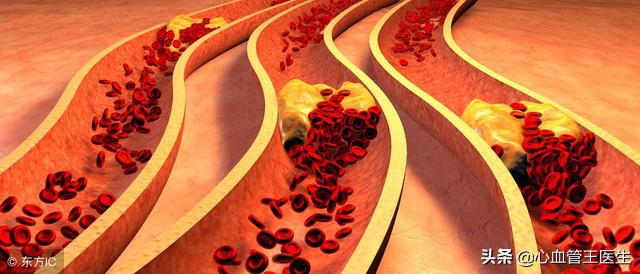
We commonly use the CHA2DS2-VASc score in our clinic to guide anticoagulation therapy.
Heart failure, hypertension, diabetes mellitus, vascular disease, female, and age 65-74 years each received 1 point, and history of previous embolism and age 75 years and older each received 2 points.
Patients with a total score of ≥2 are at high risk for stroke and anticoagulation is recommended. Use warfarin, dabigatran, and rivaroxaban for anticoagulation.
A total score equal to 1 may be anticoagulated or aspirin platelets may be given.
A score of zero would allow you to skip anticoagulation and use aspirin first.

So, when atrial fibrillation occurs, most of them need anticoagulation therapy, anticoagulation, not aspirin antiplatelet, make no mistake about it!
In conclusion, when atrial fibrillation occurs, it is important to take it seriously and realize that the biggest danger of atrial fibrillation is blood clots are strokes!
It is also important to know that atrial fibrillation must be under the guidance of specialists in the formal treatment, do not think that taking medication is troublesome, think of hemiplegia aphasia paraplegia, which is more troublesome than taking medication?
Atrial fibrillation, referred to as atrial fibrillation, is a very common cardiac arrhythmia. It often occurs in patients with cardiovascular diseases, such as rheumatic heart disease, coronary heart disease, hypertension, pulmonary heart disease, cardiomyopathy, hyperthyroidism, constrictive pericarditis, etc. Some of them can also be seen in normal people, and it can occur in emotional excitement, exercise, drinking a lot of alcohol, and after surgery.
Patients with atrial fibrillation will find that their pulse varies in strength, fast and slow, and when they listen to it with a stethoscope, the normal person is fluttering and fluttering, while patients with atrial fibrillation are fluttering and fluttering, with no regularity to speak of. Atrial fibrillation can be acute atrial fibrillation or chronic atrial fibrillation, regardless of which the first consideration is to restore the sinus heart rate as soon as possible, and prevent its recurrence, and for patients who can not restore the sinus heart rate, the first thing to consider is to slow down the ventricular rate, the fast ventricular rate can cause angina pectoris and congestive heart failure; the second is to prevent the prevention of thrombosis, the dislodgment of the embolus is easy to easily cause cerebral embolism.
Atrial fibrillation patients should quit smoking and drinking, appropriate activities, prevent colds and flu, take medication on time, timely treatment of primary illnesses, adjust the medication according to the doctor's instructions, do not blindly adjust the medication or stop taking medication.
Atrial fibrillation is categorized into paroxysmal atrial fibrillation, persistent atrial fibrillation and permanent atrial fibrillation. Paroxysmal atrial fibrillation is generally shorter in duration, not more than 24 hours, some people may return to normal on their own to sinus rhythm, some people may also apply some antiarrhythmic drugs, treatment of atrial fibrillation from this can be transformed into sinus heart rate, if more than 24 hours can not be treated with antiarrhythmic drugs, will progress to become a permanent atrial fibrillation, once diagnosed as a permanent atrial fibrillation, at this time also Once the diagnosis of permanent atrial fibrillation is confirmed, this time will also increase the risk of blood clots, especially some of the brain thrombosis, cardiovascular thrombosis, as well as lower extremity arteries, mesenteric thrombosis, as long as there is arterial circulation, may increase the risk of blood clots, which is atrial fibrillation treatment is more tricky and the risk of blood clots is relatively high. Patients with atrial fibrillation need to pay attention to the following lifestyle aspects in their daily lives.
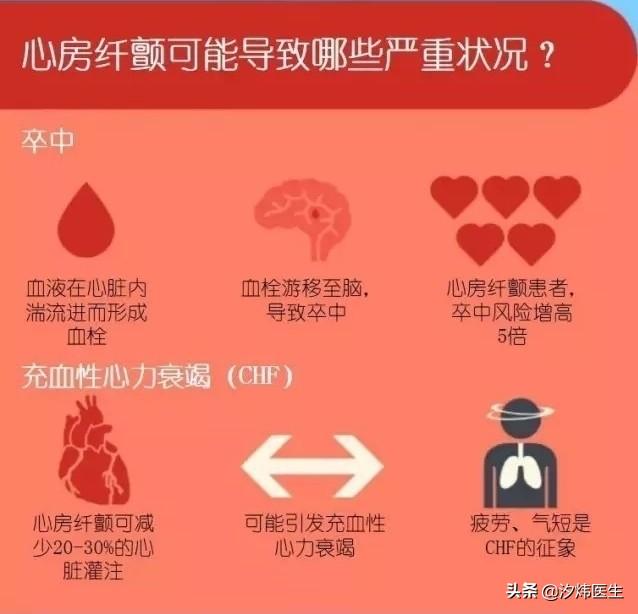
● First of all, we need to standardize the drug treatment of some anticoagulant and antithrombotic drugs to prevent blood clots, we must take aspirin warfarin and other drugs for a long time, but the need for anticoagulant drugs must be based on the age of each person and whether there is a risk of wind thrombosis, which requires professional doctors to make a comprehensive judgment. But the application of anticoagulant drugs at the same time may also appear the risk of bleeding, such as some intestinal mucosal bleeding, bleeding gums. Bleeding in the digestive tract, the risk of these bleeding will be more serious than the risk of thrombosis, so it is necessary to review the abnormalities of coagulation and stools, there is no black stools, there is no bleeding, including some abnormalities of the coagulation function.
● Observe for palpitations and chest tightness, lower extremity arterial occlusion, mesenteric embolism, and acute myocardial infarction, and thrombosis of cerebral thrombosis, including some common thrombotic risks.
● Stroke in the brain as well as cerebral stroke, the formation of cerebral thrombosis, also hemiparesis, aphasia, choking on drinking water. It is important to monitor and review these indicators on a regular basis.
● If certain anticoagulant drugs, such as warfarin, are used, it is necessary to avoid some food intake, the effect of food can also affect the indicators as well as the absorption and metabolism of the drug, and this situation must be judged by a professional doctor, and the dosage of the drug will be adjusted later according to the specific indicators as well as the laboratory indicators.
● Keep your diet and lifestyle habits in check, don't overeat, and reduce your intake of high-fat, high-protein foods to mitigate the effects of these fats on your heart and your risk of blood clots.
● Appropriate exercise should not be excessive, too much exercise may increase the risk of atrial fibrillation, induced thrombosis, once the formation of blood clots, the consequences are unimaginable.
Atrial fibrillation is actually one of the most common arrhythmic diseases in cardiology, this disease, if controlled in time, may turn into a benign malignant arrhythmia once it becomes permanent atrial fibrillation, the need to control the ventricular rate at the same time to do a good job of preventing the risk of thrombosis, prevention of thrombosis at the same time need to do a good job of the risk of bleeding, so it is said to be more tricky to treat this disease as well.
Atrial fibrillation, if not well treated, may induce malignant arrhythmias, including some incidence of atrial fibrillation, and the risk of sudden death is higher. In addition to inducing thrombosis it may also cause structural changes in the heart, cardiogenic shock, heart failure, myocarditis, and cardiomyopathy, all of which may affect the myocardium's lack of blood supply.
The application of drugs and adjust the amount of drugs, need to have a professional doctor according to the specific indicators of the condition of the selection of appropriate drugs, in order to timely control the risk of thrombosis as well as bleeding, the treatment of this drug, so that the need to standardize the scientific, but also need to adhere to a long period of time treatment。
Atrial fibrillation precautions.
For patients taking oral anticoagulants, daily must strictly follow the doctor's requirements, regular review of coagulation function, if you find small blood spots on the skin, purple ecchymosis, after injury is not easy to stop bleeding, etc., you should go to the hospital in a timely manner.
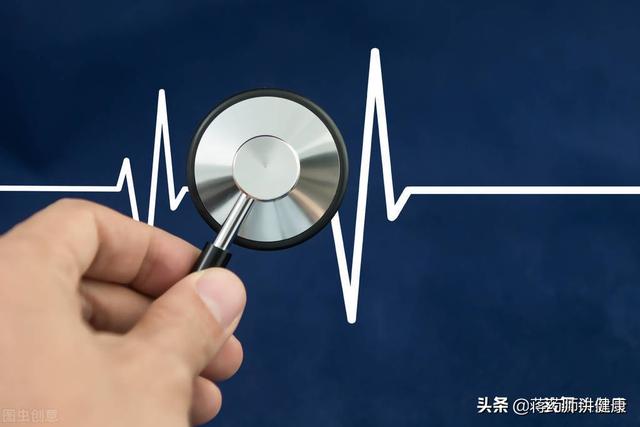
I. Observation of condition and review
1、Observation of the condition:You need to observe whether there are small bleeding spots on the body, or large bruises, if there is, it suggests that there is bleeding.
2、Review:receive coagulation function examination, for patients receiving warfarin anticoagulation therapy, when starting treatment, should be weekly monitoring of the international normalized ratio (INR), three consecutive monitoring of the international normalized ratio (INR) are 2-3, can be changed to 1-2 times a month to review, the specific circumstances should be strictly adhere to the doctor's instructions.
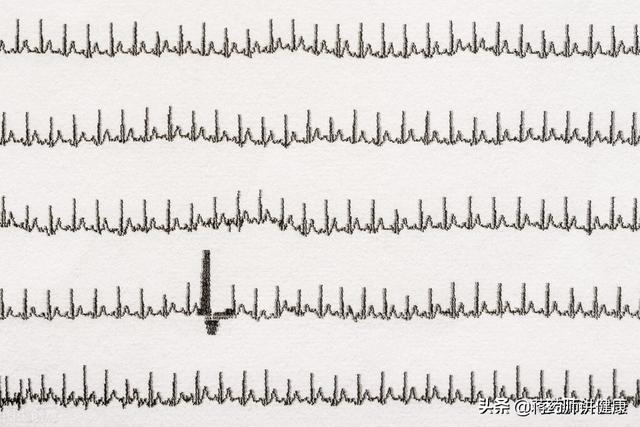
Second, dietary arrangements:Eat more heart-healthy food. Such as fish, fruits, vegetables, beans, high-fiber grains, olive oil and so on.
III. Other considerations
After taking anticoagulants, pay attention to the following issues:Problems that may cause bleeding should be avoided, such as preventing falls or injuries. If you need to have minor surgery (such as a tooth extraction), you need to tell your doctor in advance that you may need to stop taking your medication.
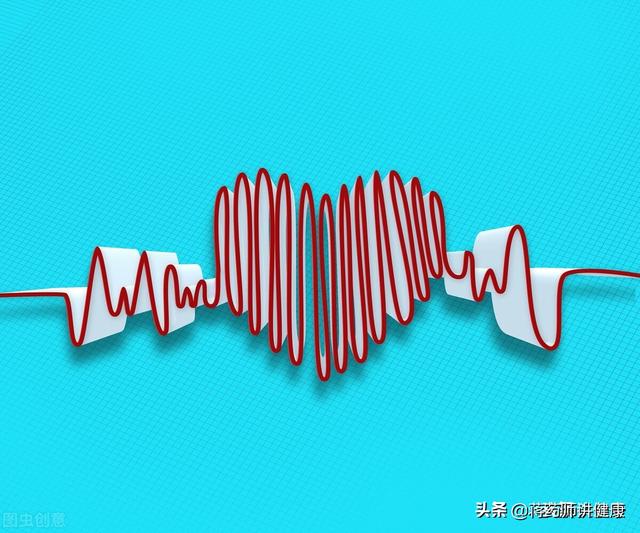
Prevent conditions that may trigger AF episodes:Aggressively treat pre-existing heart conditions. Watch for symptoms of sleep apnea. Seek medical attention if you experience symptoms such as snoring and daytime sleepiness.
What's going on with atrial fibrillation?
{!-- PGC_VIDEO:{'thumb_height': 1080, 'vid': 'v02016500000bs8fujo2sfq1s29crsp0', 'thumb_width': 1920, 'vposter': 'https://p3-sign.toutiaoimg.com/tos-cn-p-0000/a2af0aa79f9c4ef6a6a7ec0cd5064506~noop.image?x-expires=1960291347&x-signature=68sJiu7DLyETHgxmkK%2BZfobhfBw%3D', 'vu': 'v02016500000bs8fujo2sfq1s29crsp0', 'duration': 201.433, 'thumb_url': 'tos-cn-p-0000/a2af0aa79f9c4ef6a6a7ec0cd5064506', 'thumb_uri': 'tos-cn-p-0000/a2af0aa79f9c4ef6a6a7ec0cd5064506', 'video_size': {'high': {'duration': 201.433, 'h': 1080, 'w': 1920}, 'ultra': {'duration': 201.433, 'h': 1080, 'w': 1920}, 'normal': {'duration': 201.433, 'h': 1080, 'w': 1920}}} --}
What do I need to know about atrial fibrillation?
{!-- PGC_VIDEO:{'thumb_height': 1080, 'vid': 'v020169f0000bs8fvvsk1dji1vetdec0', 'thumb_width': 1920, 'vposter': 'https://p3-sign.toutiaoimg.com/tos-cn-p-0000/129b5a730973405e8cbe2cefc4b47856~noop.image?x-expires=1960291347&x-signature=GX7PzGn0zym4SECqgZj83sACyI0%3D', 'vu': 'v020169f0000bs8fvvsk1dji1vetdec0', 'duration': 321.108, 'thumb_url': 'tos-cn-p-0000/129b5a730973405e8cbe2cefc4b47856', 'thumb_uri': 'tos-cn-p-0000/129b5a730973405e8cbe2cefc4b47856', 'video_size': {'high': {'duration': 321.108, 'h': 1080, 'w': 1920}, 'ultra': {'duration': 321.108, 'h': 1080, 'w': 1920}, 'normal': {'duration': 321.108, 'h': 1080, 'w': 1920}}} --}
Liu Xingpeng - Chief Physician, Professor, Doctoral Mentor Director of Arrhythmia Department and Deputy Director of Cardiac Center, Chaoyang Hospital, Capital Medical University, Beijing, China; Member of Cardiac Electrophysiology and Pacing Branch of Chinese Medical Association and member of National Atrial Fibrillation Working Group; Member of Standing Committee of Cardiac Arrhythmia Working Committee of Chinese Physicians' Association and Deputy Director General of the Committee; Member of Standing Committee of Cardiac Electrophysiology and Pacing Branch of Beijing Medical Association; Founder of Hartram Heart Rhythm Specialist Group. Standing Committee Member and Deputy Director General, Arrhythmia Working Committee, Chinese Medical Association; Standing Committee Member, Beijing Medical Association; Standing Committee Member, Cardiac Electrophysiology and Pacing Branch, Beijing Medical Association; Founder, Hartram Heart Rhythm Specialist Group.
More health disease related issues, welcome to follow us! Medical Microvision, is committed to becoming China's highest quality medical patient education micro-video platform!
I have a patient with chronic persistent atrial fibrillation and coronary artery disease. During hospitalization, he took antiplatelet drugs and anticoagulants (warfarin). Because his family lives in a rural area where medical conditions cannot keep up, he lives alone and has no one to take care of him, and he has a low level of education, he did not continue to take the warfarin after he was discharged from the hospital. She did not come back for a follow-up appointment in time, and as a result, one year later, she suffered a stroke, which caused her mouth and eyes to be distorted, her speech to be slurred, and one side of her arm and leg to be hemiplegic.
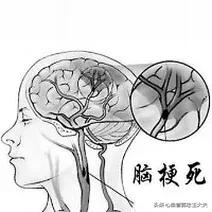
The risk of stroke in patients with atrial fibrillation is five times higher than in patients without atrial fibrillation. Therefore, patients with atrial fibrillation are treated with anticoagulation according to the risk of stroke.
Patients taking anticoagulant medications to prevent blood clots from forming. In life should pay attention to observe whether there is bleeding gums when brushing teeth. Skin mucous membrane petechiae and ecchymosis, avoid falling and collision to prevent bleeding. Pay attention to whether there is blood in the stool or discharge of tarry stool, avoid spicy, irritating food to avoid gastrointestinal bleeding, patients taking warfarin should regularly monitor the coagulation function (INR) to prevent bleeding caused by excessive anticoagulation.
The author had a patient in atrial fibrillation taking warfarin who did not have regular monitoring of coagulation (INR) as required, which caused vomiting of blood to resolve black stools. On admission the INR was measured to be 14 (usually required to be 2 to 3) and emergency gastroscopy revealed a long, damaging ulcer on the surface of the gastric mucosa. Follow-up history The patient ate hard potpourri prior to bleeding. After discontinuing warfarin, using vitamin K1, acid suppression for hemostasis combined with endoscopic hemostasis the bleeding stopped and he recovered and was discharged from the hospital.
Patients on the newer oral anticoagulants (rivaroxaban, dabigatran, etc.) do not need to have their coagulation monitored, and the anticoagulant effect is no less than that of warfarin. The patient above was switched to dabigatran orally and has now been followed for over a year without stroke or bleeding.
In patients with atrial fibrillation, try to convert to sinus rhythm if you can. This includes electrical reversal, pharmacologic reversal, and radio screen ablation.
Those who cannot be converted to sinus rhythm have their ventricular rate controlled, usually requiring 60 to 80 beats/minute for quiet and 90 to 110 beats/minute for light activity.
Patients should develop good living habits, do not smoke or drink alcohol, do not engage in strenuous physical activities, do not drink strong tea or coffee, and maintain emotional stability to prevent the above factors from triggering atrial fibrillation.
Avoid straining to defecate, which can lead to rapid ventricular rate and induce heart failure.
Atrial fibrillation is a common type of arrhythmia, and patients need to take medication on a regular basis in addition to their usual routine.
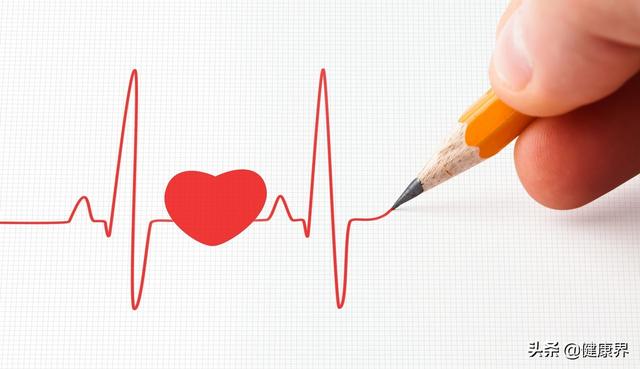
What do I need to know about atrial fibrillation in my daily life?
1. Dietary care
Atrial fibrillation patients can eat more vegetables, fruits, fresh fruits and vegetables are rich in vitamins and fiber, but also contains more potassium, for the control of blood pressure, to maintain electrolyte balance are more helpful.
In addition, eat less greasy food, control the intake of fats and cholesterol; usually quit smoking and limit alcohol, less coffee, strong tea and other stimulating foods; cooking should be less salt, the best daily control of 5g or less.
2. Adequate rest
It is important for people with atrial fibrillation to stay well rested, especially during acute episodes.
3. Active treatment of primary diseases
Patients with arrhythmia should be carefully diagnosed to see if there are any other primary causes. If there are any after diagnosis, the patient should be treated promptly for the primary cause of the arrhythmia.
Clinical changes in heart rate, blood pressure, and cardiac rhythm require great attention, such as sudden acceleration or deceleration of the heart rate, palpitations, shortness of breath, and a drop in blood pressure, all of which should be consulted and treated in a timely manner.
In reality, atrial fibrillation is not that scary, and as long as it is detected early, treated in a timely manner, and with the advice of your doctor, you can usually recover.
This question and answer are from the site users, does not represent the position of the site, such as infringement, please contact the administrator to delete.